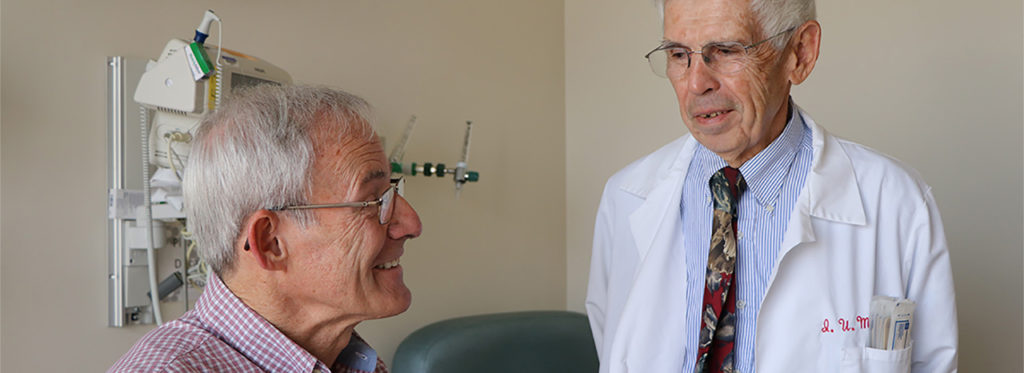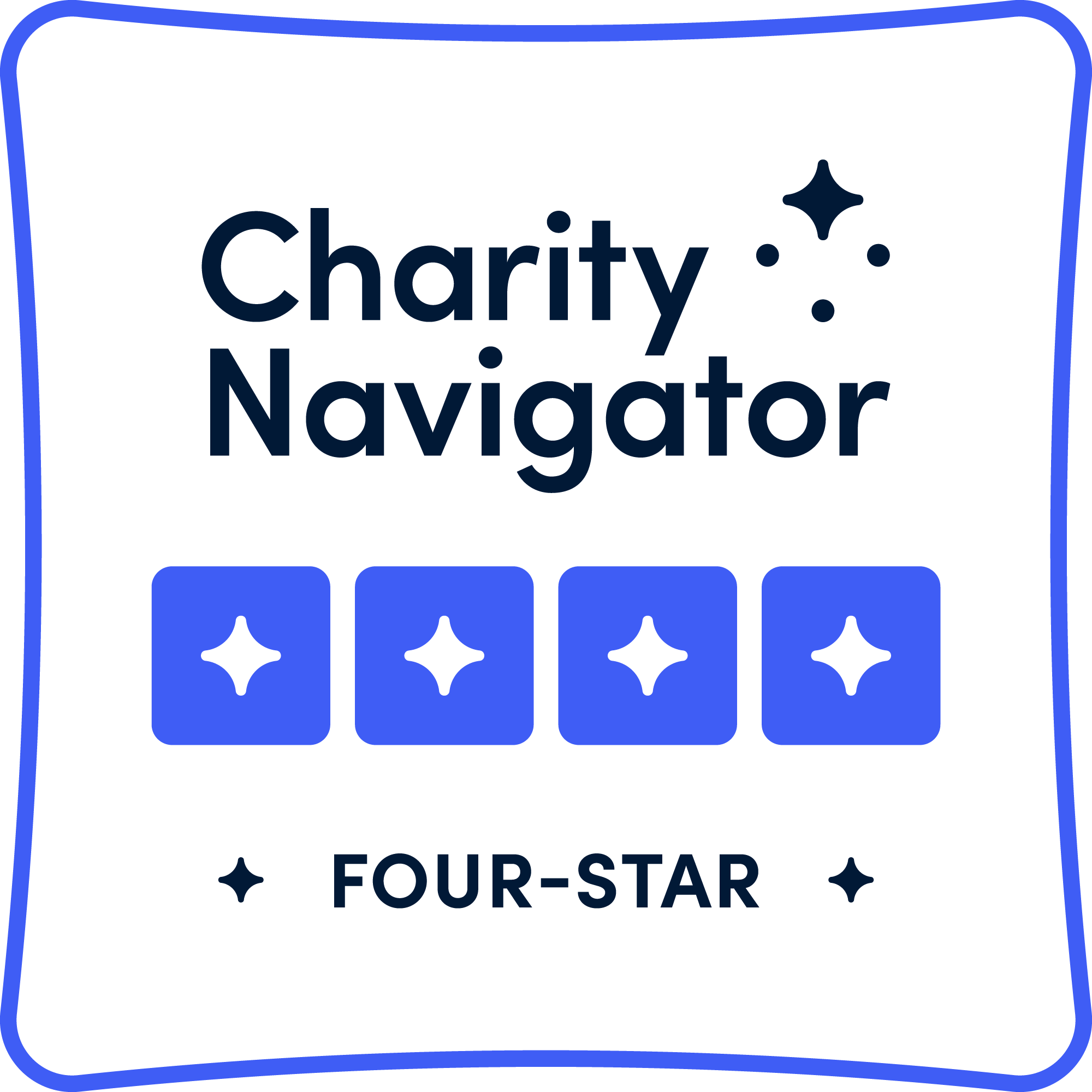Remembering Dr. Merrill Benson
The Amyloidosis Research Consortium extends our deepest, heartfelt condolences to the family and friends of Dr. Merrill Benson, world renowned amyloidosis expert, who passed away on September 11, 2021. He was 83.
Internationally revered, Dr. Merrill Benson was a pioneer in the amyloidosis field. As a compassionate and well-respected physician, Dr. Benson had a remarkable relationship with patients, many of whom traveled from around the world to see him. Over decades, he was steadfast in his commitment to advancing the understanding and treatment of hereditary amyloidosis. This unwavering dedication ultimately led to the creation of Tegsedi® (Inotersen), which treats polyneuropathy in patients with hereditary amyloidosis (hATTR).

Born in Richford, VT to Leonard John Benson and Grace Maud (McAllister) Benson, Dr. Merrill Benson graduated from the University of Vermont (UVM) Medical School. While at UVM, Dr. Benson met the love of his life, Marlene Ann Aldo, to whom he was married for 54 years.
After graduating, Dr. Benson served in the US AIR Force for three years and then became a staff physician and research fellow at Boston University.
“Merrill and I trained together at Boston University Arthritis Center where the research was on amyloid diseases. It was early in the study of amyloidosis and we really grew up together in the amyloid world. During that time, we ‘talked amyloid all day every day,’” remembers Dr. Martha Skinner.
In 1976, Dr. Benson and his wife, Marlene, relocated their family to Indianapolis in 1976 to help start the Rheumatology Division at Indiana University Medical Center.
Dr. Skinner and Dr. Benson kept in touch. “We collaborated on many projects and regularly spoke by phone. The fun of talking research and discovery continued for the next 50 years,” shared Dr. Skinner, who is now professor emerita at the Amyloidosis Center at Boston University School of Medicine.
“He was one of my best friends. I will miss our phone calls, our amyloid discussions, and the lovely friendship of many, many years,” she shared.
The word Dr. Skinner would use to describe her friend and colleague Merrill Benson is brilliant. “Every time there was a patient who seemed to have a new type of amyloidosis, Merrill doggedly pursued finding out what protein caused it,” shared Dr. Skinner. “And I think he discovered the cause of the amyloid protein in all but one new rare, usually familial type. Then of course, he found the abnormal gene and established the patient’s pedigree by looking at as many family members as he could find.”
As he continued his research, Dr. Benson became known internationally and, in 2001, Dr. Benson crossed paths with Dr. Brett Monia. At the time, Dr. Monia was a bench scientist at Ionis Pharmaceuticals, and was giving a presentation about the technology Ionis was developing at the time called antisense, which suppresses disease-causing proteins, particularly in the liver.
After the presentation, Dr. Benson reached out to Dr. Monia. “He said, ‘Dr. Monia, I think I have an application for your technology,’” recalled Dr. Monia, who is now CEO of Ionis.
That phone call was the beginning of a more than 20 year working relationship and friendship between Dr. Benson and Dr. Monia, eventually leading to Dr. Benson becoming the lead investigator for the clinical trial for Ionis’ Tegsedi® (Inotersen), which, when it received FDA approval, became the second approved drug for hereditary amyloidosis.
The impact Dr. Benson made in advancing the treatment for amyloidosis is only part of Dr. Benson’s legacy as a researcher and clinician; he was also known for the compassion and care he showed patients.
“Patients just loved to be with him. They trusted him,” shared Dr. Monia. “He was very honest, he was very transparent, but he also had a great sense of humor with them, but he didn’t hold anything back. Patients came from all over the globe to see him, particularly for TTR amyloidosis. They believed that if someone was going to do something about their disease it would be him. It was all about the patients. He gave them all the time they needed.”
Jennifer Brink, who was one of Dr. Benson’s patients and many of whose family members were also under his care, shared, “Throughout the years I would meet with Dr. Benson. He would contact me when updated technology would become available. I remember echocardiograms, EKGs, and CT scans, he was always testing on how he could use what he had learned by working with our family better ways to treat us and others like us, afflicted with the same disease. He was always willing to meet with family and discuss the latest advancements in research.”
Brink, a retired professor, and program director of respiratory therapy who lives in Bluffton, Indiana with her husband and has two grown daughters, also shared that Dr. Benson attended many of the funerals of her family members.
With Dr. Benson past the age that most people retire, Dr. Monia recalled asking his friend about whether he ever planned to retire or slow down.
“Merrill said, ‘You know I’d love to spend more time with my horses, but patients keep getting sick.’”
Similarly, when Dr. Monia and Dr. Benson were fighting an uphill battle to get funding, Dr. Monia asked Dr. Benson, “Are you ever going to give up on this? Are we ever going to give up?”
“He said, ‘Yeah maybe we should,’” shared Dr. Monia, “Then he said, ‘But first can you tell me what answer I can give patients when they ask, ‘What can you do for me, doc?’ So, he never gave up.”
“Merrill was a great friend, a great collaborator. I will miss the conversations we often had on Friday afternoons,” shared Dr. Monia. “He wasn’t one to set up meetings, but he would call after he finished up with patients. It was these casual conversations we had about the field of science and medicine that I will miss the most.”
Dr. Merrill Benson’s passing is a tremendous loss. He will be greatly missed by all who had the honor and pleasure of knowing him, and the entire amyloidosis community.
Image courtesy of Indiana University School of Medicine
- Categories



